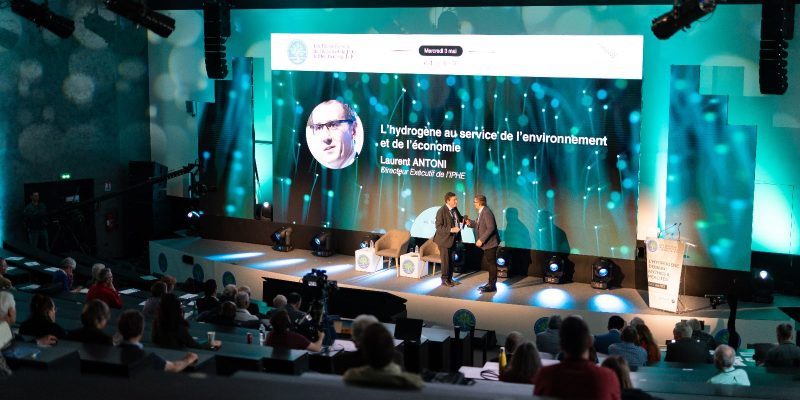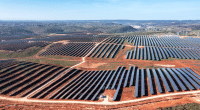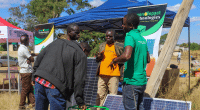On 3 and 4 May 2023, the 13th Artois and Mediterranean Round Tables, organised by Aix-Marseille University in partnership with the Mohammed VI Polytechnic University (UM6P), aimed to propose a reflection on the theme "Hydrogen of tomorrow: myth or reality?", and more specifically on the place of hydrogen in the energy transition.
Two days of conferences bringing together eighteen expert speakers, industrialists and members of the civil sector and associations. The 13th Round Tables were intended to be a forum for the debate of ideas in order to answer one question: “Hydrogen, the energy of tomorrow?
The subject is not new. As Professor Daniel Nahon, creator of the Arbois Round Tables, recalled during the opening plenary session: “Jules Verne predicted it in The Mysterious Island as early as 1875. Already he had one of the characters in his novel say, ‘Hydrogen and oxygen, which constitute water, used alone or simultaneously, will provide a source of heat and light that is inexhaustible and of an intensity that coal could not have. One day, the holds of steamers and the tenders of locomotives, instead of coal, will be loaded with these two compressed gases, which will burn in homes with enormous calorific power.
While the current challenges associated with this energy are already known, notably the decarbonisation of industry as part of the energy transition, there is still much to be done. It is estimated that 500 million tonnes of CO2 emissions could be avoided thanks to green hydrogen.
For Marc Guillaume, professor at the University of Paris-Dauphine and a specialist in green hydrogen, “Rather than talking about hydrogen tomorrow, we should be talking about hydrogen ‘the day after tomorrow’, by 2030-2040.
Research as a driver for change
For the event’s organisers, scientific research and innovation are key elements in the development of green hydrogen, which is an emerging technology in the energy field.
In this respect, the presence of the Mohammed VI Polytechnic University (UM6P) as a co-organiser makes perfect sense. “We are an institution for applied research on themes related to the African continent, particularly concerning the challenges of energy transition,” explains Hicham El Habti, President of the University. “The African continent is called upon to strengthen its industrial capacities. The advantage we have with hydrogen is that, from the outset, we can imagine a decarbonised industry. Today, there is a lot of talk about decarbonisation, with an industry with high emissions. The African continent will be able to have a decarbonised industrial tool thanks to hydrogen. This dynamic must be accompanied by an autonomy that also requires sovereignty in terms of expertise and know-how. The development of our scientists and the financing of research are at the heart of our raison d’être at UM6P.
The ambition of Morocco and the UM6P is to respond rapidly to the needs in terms of training of young researchers, research infrastructures, technology transfer, acquisition of and access to data, and finally connection with regional and international research networks.
What role for Africa in this dynamic?
For Bart Biebuyck, Executive Director of the European Clean Hydrogen Partnership, it is quite simple: “Africa’s role is to help Europe to be the first continent to achieve carbon neutrality. This requires a low-cost supply of hydrogen. And that’s because of the ideal conditions for producing hydrogen, namely plenty of sun and wind.
According to several studies, Africa could produce up to 50 million tonnes of green hydrogen per year by 2035, much of it for export. The continent will also be able to reap other benefits from this dynamic. “To achieve these goals, Europe will have to bring new technologies to the African continent and train engineers and technicians. This new knowledge can then be applied to other uses,” says Bart Biebuyck.
Paul Lucchese, Chairman of the IEA Hydrogen Agreement, sees things differently: “This production will primarily serve to meet Africa’s internal needs. A view also shared by Marc Guillaume:
“We should not be too impatient. African producer countries must first play a role on their continent” and concludes “Each African country must discover its ‘territorial genius’ and, from there, produce development poles and connections between these poles”.







